Games can be pretty straight forward with naming and design. Face it, if you see a game titled Bullets & Guts, odds are pretty good that it will be a violent shooter that will have you responsible for the evisceration of many, many enemies. Norman’s Great Illusion is not one of these simple games. Developed by Civil Savages and released by Sometimes You, this game is far from your average title.
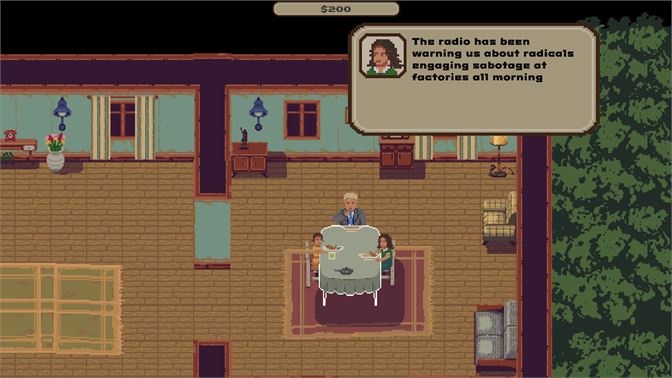
You play a year in the life of an engineer, but it is not your average year in the life routine. The country is facing an uncertain future, and each of your choices will influence how you fit into the changes. Will you be a company man and tow the line, or will you join the few that are ready for a real change?
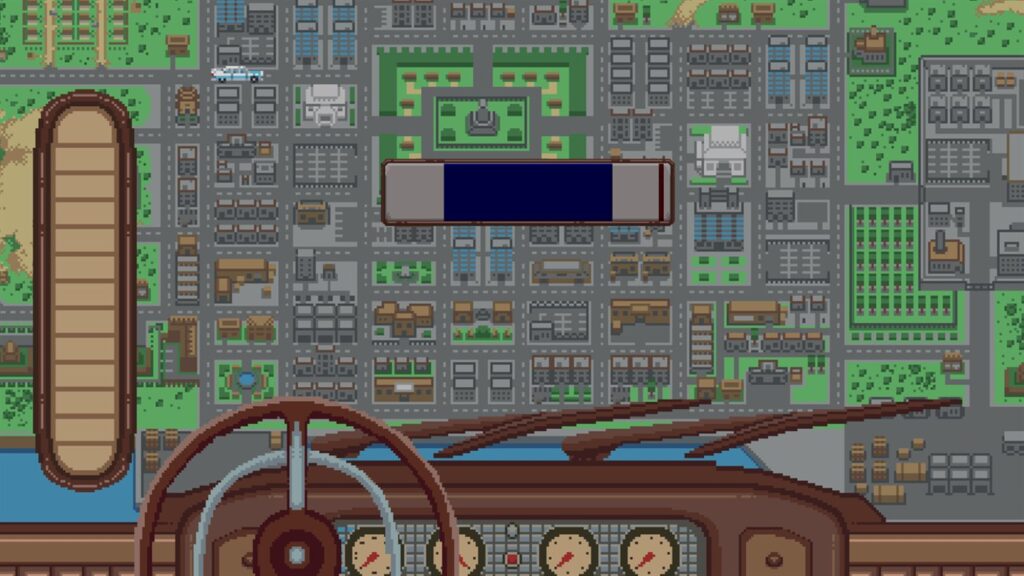
Game play is very basic. Get up, get dressed, have a meal with the family, then drive to work, complete your day, then drive home. Meals with the family will give you information about current affairs. Driving is a mini game all to itself. You must stop a sliding mark along a green line or face damage to your prized auto. Work is another test of your brain power. As an engineer you will have to answer math questions. While most are simple equations, you will have to remember your order of operations and solve them before time runs out. If you accidentally hit a wrong number, you will answer incorrectly because there is no CLEAR button on your calculator. How well you do your job has a big influence on the turn your story takes.
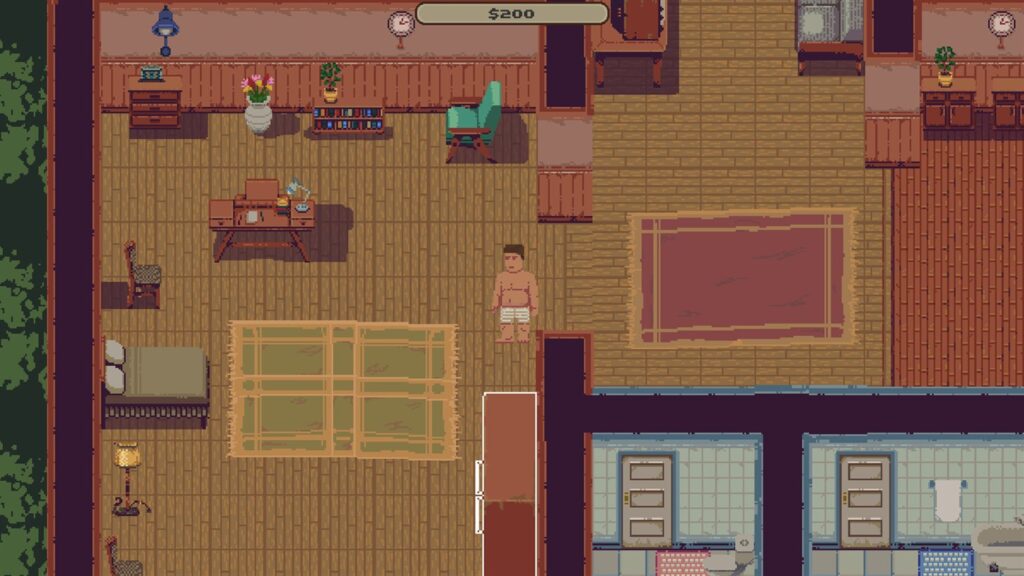
There are seven different endings for you to explore. Each play through doesn’t take that long, so you can complete them all within about 90 minutes. What will take the longest is your day at work. You have to excel at your job in order to get bonuses and extend the game to get several of the endings. There is a story here, about workers, politics and the different ways a country can go. Unfortunately, there is not enough game here to tell it intelligibly. Bits and pieces, spread a month or more apart, give you fragments of the story, but without the connecting pieces, you are just left wondering.
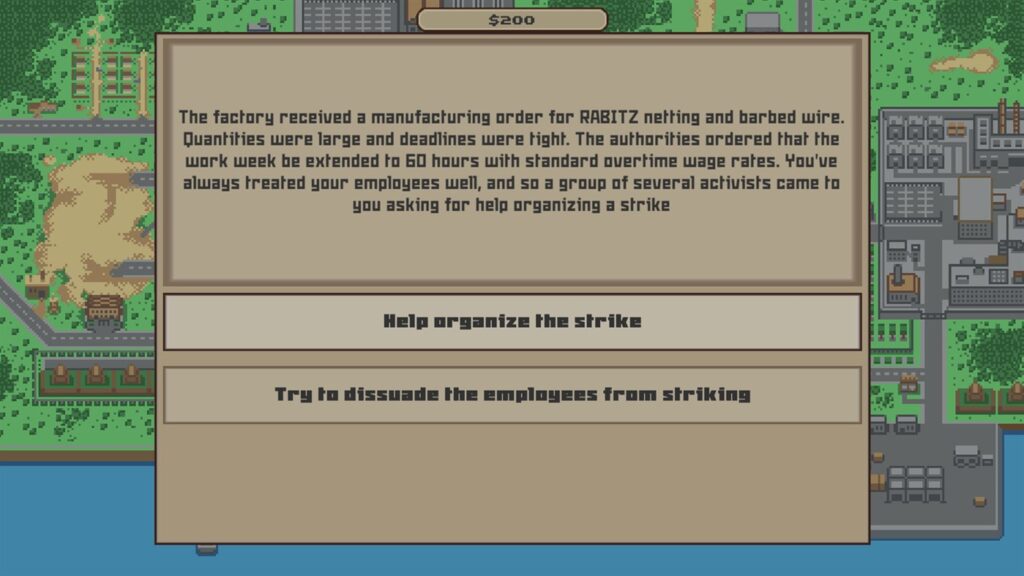
Graphics are slightly pixelated and appear dated. A muted color palette gives the impression that no matter how you play, things will not end well for this world. There are some interesting quotes that serve as loading screens. With them, you are given an idea where things might be headed. The scenes are limited, so there isn’t a lot to do except move the story forward. One of the slightly frustrating things about the game is that you have a fully furnished home, yet there are few items to actually interact with.
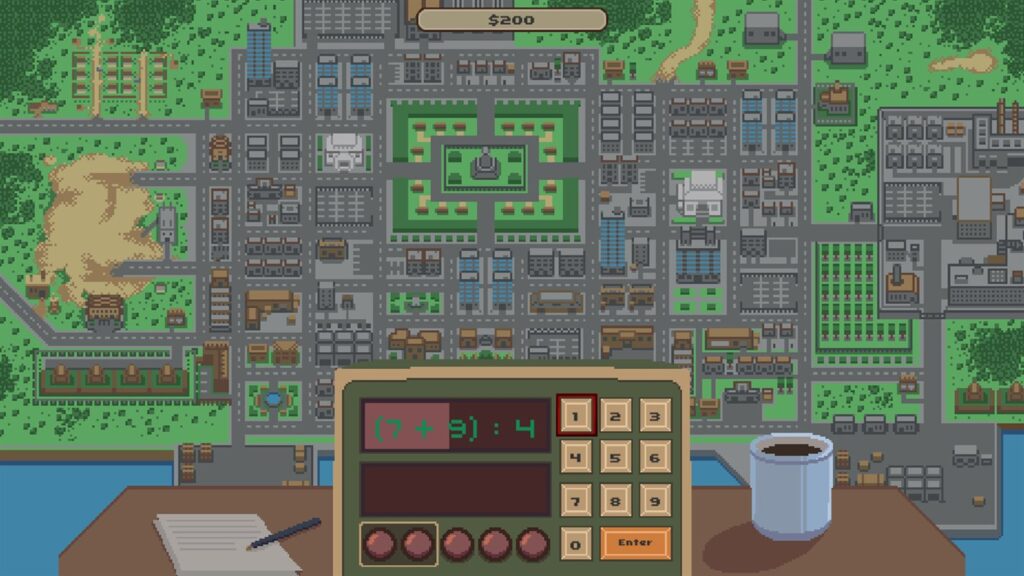
When I saw the description of this game, I was hopeful. When a game takes the time to teach social or political systems while still entertaining the player is a rare thing, but amazing when it works properly. This game doesn’t get it close to entertaining, instead plays more like a math quiz. It is interesting to play through once but gets repetitive very quick. If you are looking for a game with easy Gamerscore, this one fits the bill, just don’t pay an arm and a leg for it because there is little replay value here.

